|
The Issues in Relation to Censuses and Identity by Chris Boudreau. April 6, 2019 Click the "Read More" button at the end of the page to continue reading the full article. This folder contains a rather interesting article that was published in the Saturday, May 06, 1893 edition of the Québec newspaper entitled, “La Vérité: Journal Hebdomadaire.” The article is entitled, “A Propos du Recensement” and appears on page 03 of this edition. This article is very important, as it raises issues in how censuses were/are enumerated more specifically, the Canadian Census of 1891 and how the “Canadiens-Français” (“French Canadians”), the “Acadiens” (“Acadians”), and the “Métis” were enumerated on that census in the provinces of Nova Scotia, Ontario, Manitoba, and the North—West. There are a few important excerpts in this article (all found on page 03) and the first is as follows: “Le Courrier du Canada, de samedi dernier, publie un article vigoureux contre les erreurs ou plutôt les fraudes du dernier recensement. On le sait, ce recensement ne donne pas le veritable nombre des Canadiens-français, des Acadiens et des Métis français, particulièrement dans la Nouvelle Ecosse, la province d’Ontario, le Manitoba et le Nord-Ouest.” This loosely translates to the following: “Le Courrier du Canada, last Saturday, published a vigorous article against the errors or rather frauds of the last census. We know it, this census does not give the true number of French-Canadians, of Acadians and of French Métis, particularly in Nova Scotia, the province of Ontario, Manitoba, and the North-West.” Clearly, the author of this article firmly believes that the Canadian census of 1891 was very inaccurate when it came to showing the true number of people of Acadian, French-Canadian, and Métis descent in Ontario, Nova Scotia, Manitoba, and the North-West. So why was this? As we’ve seen elsewhere in this collection, certain things were often concealed in documentation, such as a person’s race or culture. We’ve also seen that there was intense hatred toward Acadians and French Canadians in general, let-alone those who were Métis. Could this be the explanation? This likely contributed to these skewed numbers and therefore, the Author saw this inaccuracy as a sort of “fraud.” A second important excerpt from this article is as follows: “En bon français, clair et net, cela veut dire que M. Johnson avoue que les chiffres de son recensement ne valent rien. Alors à quoi bon les publier?” This loosely translates to the following: “In good French, clear and clean, that means that Mr. Johnson confesses that the figures of his census are worth nothing. So what is the good in publishing them?” Once again, we see that the Author strongly believed that the results of the 1891 Canadian census were skewed to the point where the data concerning people of Acadian, French-Canadian, and Métis descent in Ontario, Nova Scotia, Manitoba, and the North-West was of no value to the country of Canada. A third excerpt from this article is as follows: “D’abord, le dénombrement des peoples est une institution fort ancienne, mais aussi fort discutable…” This loosely translates to the following: “Firstly, the enumeration of peoples is a very old institution, but also highly debatable…” Once again, we see the Author’s belief concerning the value of censuses and they raise the issue that censuses have always been debatable in what is reported. A final excerpt from this article concerns the potential consequences of improper reporting on censuses. This excerpt is as follows: “Du reste, en supposant que le prochain recensement du Canada declare qu’il n’y’a pas un seul Canadien-français au pays, cela diminuera-t-il véritablement le nombre de nos compatriots ?” This loosely translates to the following: “Moreover, suppose that the next census of Canada declares that there is not a single French-Canadian in the country, will it really reduce the number of our compatriots ?” This final excerpt is very important, as it can apply to most, if not all censuses ever taken in the world. The mainstream thoughts and practices of society significantly impacts how people act. If mainstream society believed that to have “Métis” or “Acadian-Métis” ancestry was a reason for people and families to fear for their lives then this is how it was. As we’ve seen through other documentation in this collection, this was the case at various points throughout the history of Acadia. So why wouldn’t “Acadian-Métis” families hide their true identity? It was a survival tool. Also, who’s to say that people didn’t lie on the censuses of pre-Deportation Acadia? We know that certain “Heads of Household” refused to provide information to Enumerator, Laurent Molins on the 1671 census of Acadia. For example, it was noted by Mr. Molins that when he arrived at the home of “Estienne Robichau” to record information concerning Estienne’s family: “… ne ma pas voulut voir Il a sorty de chez Luy et a dit a sa femme quel me dit quil ne me vouloit point donner le Conte de ses bestiaux et terres.” This loosely translates to: “…did not want to see me He went out from his house and said to his wife that he did not want to give me the number of his livestock or land.” It’s also important to note that the following entry on this census, which concerns the family of “Pierre Lanoue” states the following: “… ma fait response Lorsque que je Luy ay demandé son aagé quil se portoit bien et qu'il ne Le vouloit pas donner.” This loosely translates to the following: “… gave me the answer When I asked him his age that he was well and that he would not give it.” Seeing as how the 1671 census was the first proper census record for Acadia, we can easily say that the inhabitants of Acadia had been defiant when it came to the enumeration of the people right from the early beginnings of Acadia. If Estienne Robichau and Pierre Lanoue blatantly refused to give information to the Enumerator, Laurent Molins on the first Acadian census, who’s to say that people didn’t lie on the following censuses or simply refuse to be enumerated? To add to this, we also know that there were in fact multiple “mixed-race” families enumerated on the 1671 census of Acadia due to other records, such as letters, subsequent censuses, and parish records however, there is NO mention of race of ANY of the First Nations or “Métis” people included in this census! For example, we now know for certain that “Germain Doucet (1641),” husband of “Marie Landry” was of First Nations descent due to DNA testing, but there’s no mention of his ancestry on this census. Another example, is the family of “Pierre Martin (Junior)” and “Anne Ouestnorest” were mixed-race, as Anne was of First Nations descent however, there’s no mention of her ancestry either. A final example, is the family of “René Rimbault” and “Anne-Marie,” as we now know that Anne-Marie was of First Nations descent due to DNA testing. It’s also worth noting that “Anne-Marie” has been discussed multiple times in this collection. Original copies of all the census entries I’ve just mentioned, as well as “Canadian Public Archives” transcriptions (Microfilm # C-2572) of the entries can be found in this folder as well. So to summarize, the purpose of this writing has been to demonstrate that relying on census records, even back to the earliest official census of Acadia to find out a person’s origins is an incorrect practice, and this has been the same as it has been throughout history. For example, on the 2016 Canadian census, I could’ve easily stated that I was “African-Canadian” or “Asian-Canadian.” Does this mean I’m telling the truth? Absolutely not! Could someone’s ancestor(s) have done the same say on the 1693 Acadian census, for example? They absolutely could’ve. Does the fact that nobody (“mixed-blooded” or “purely European descent”) was recorded specifically as an “Acadian” (versus “French”) on the early censuses of Acadia make them any less of an “Acadian?” No it doesn’t! So, my point is that relying on census records, or even parish records as a method of “proving” that someone or a family was not “Acadian-Métis” doesn’t always tell the “true story” about that person/family. We’ve seen this multiple times throughout this collection. For example “Joseph Mius d’Azy I,” who was stated to have been a “Part Indian” by Captain Cyprian Southack in his in his January 22, 1718/1719 Memorial, yet there’s absolutely zero evidence of his “mixed-race” ancestry in any parish records concerning Joseph or his family or on the 1708 Acadian census for Cape Sable, which is the only census Joseph and his family appear on. It’s common knowledge that Joseph was “Métis,” but do the records reflect this? Not really. So who’s to say that other similar situations can’t be found throughout the history of Acadia? I’ll finish by noting that an original copy of the entry for the family of “Joseph Dazy” and “Marie Tourangeau” can be found in this folder, as well as a typed transcription of this entry held by the “Bibliothèque et Archives nationales du Québec (BAnQ)” in Québec (P1000,S3,D1769). The original copy of this census is part of the “Edward E. Ayer Manuscript Collection” at the Newberry Library in Chicago, Illinois in the United States of America (“Ayer MS 751”). References:
Comments are closed.
|
Archives
April 2025
Category
All
|

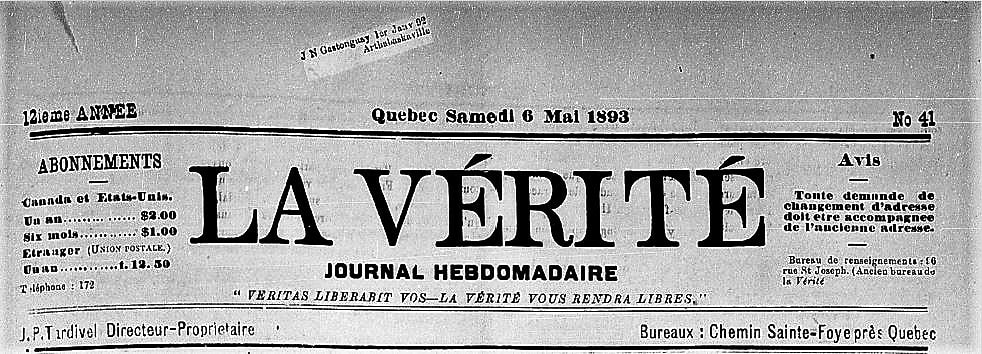

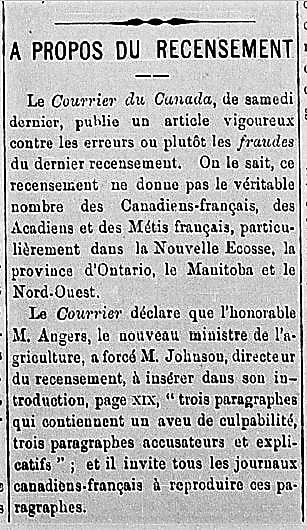
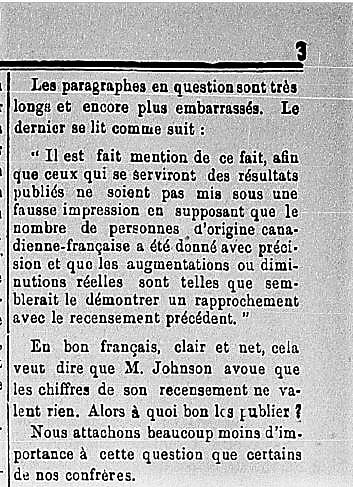
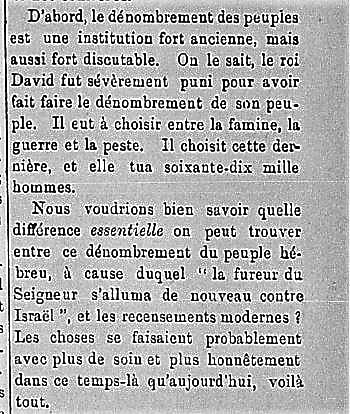
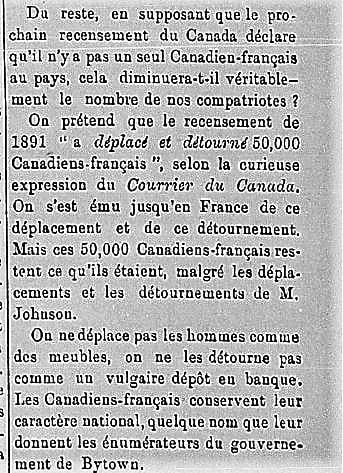
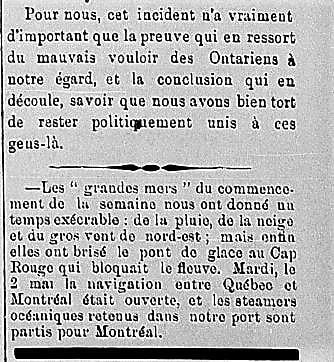
 RSS Feed
RSS Feed


